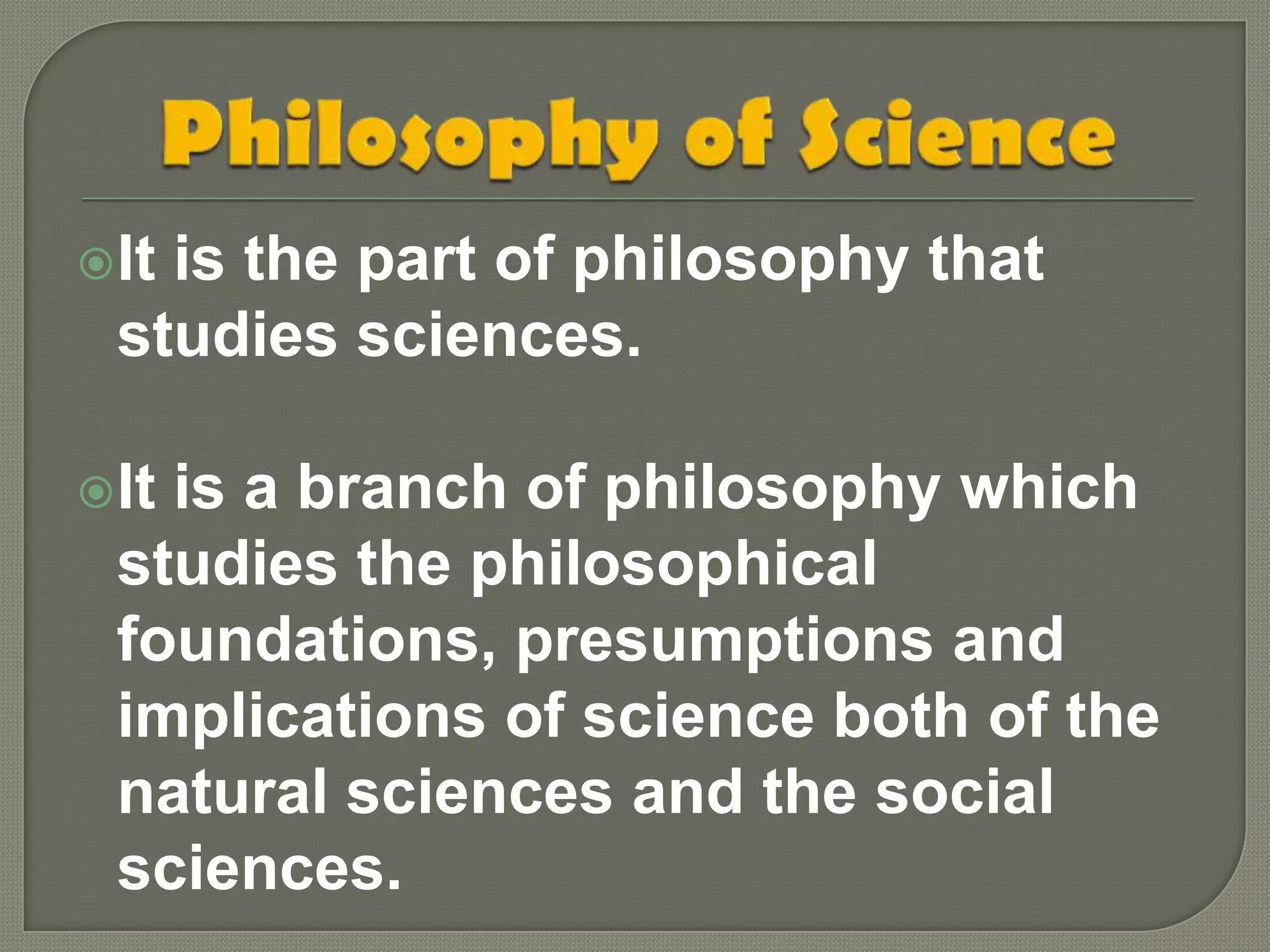The document discusses several topics related to philosophy and reasoning. It defines philosophy as the study of science and its foundations. It explains different types of reasoning like deductive, inductive, abductive, and analogical reasoning. It also discusses concepts like reason, empiricism, and the origins and characteristics of ancient Egyptian philosophy which was believed to be one of the earliest forms of philosophy and was flexible, pragmatic, and considered emotion.





















